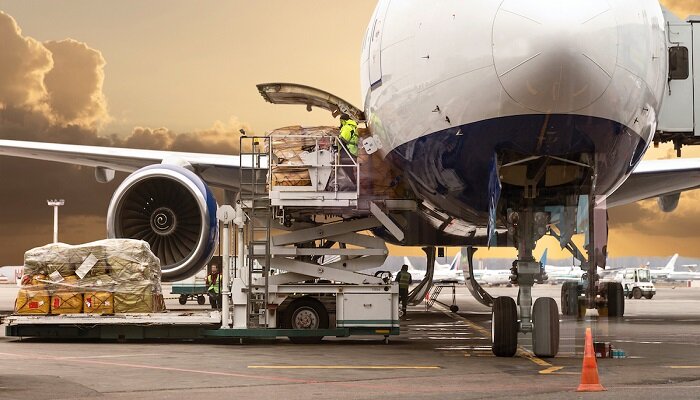Cathay Cargo, a subsidiary of Cathay Pacific Airways, is now in the process of negotiating with an Indian airline to use its cutting-edge cargo facility in Hong Kong, which has the ability to handle 2.7 million tons of cargo annually. Cathay Cargo facility’s Chief Operating Officer, Mark Watts, indicated that negotiation with one Indian airline is now taking place, despite the fact that there are no Indian airlines utilizing the facility at the present time. The objective is to improve business operations and foster more effective cooperation in the years to come. Watts reiterated Cathay Cargo’s commitment to extending its presence in the Indian market, despite the fact that he did not disclose the name of the particular airline.
The Cathay Cargo Terminal, which is more over one lakh square meters in size, has extensive cargo handling capabilities and has the possibility for additional expansion. Watts added that Cathay Cargo is still open to explore worldwide prospects, including those in India, despite the fact that the firm does not presently have any plans to construct operations outside of Hong Kong. The possibility of Cathay Cargo making an investment in the Indian market or in any other market would be studied very seriously by the company.
Watts emphasized that the Hong Kong terminal is accessible to every foreign airline that is flying into or out of the area, and he underlined his excitement for Indian airlines to take use of the facilities that Cathay Cargo provides. He brought attention to the fact that the ongoing talks with an Indian carrier have potential, despite the fact that particular information cannot yet be published owing to the fact that the negotiations are still still in progress.
During an interview with the Press Trust of India (PTI), Tom Owen, Director of Cargo at Cathay Pacific Airways, discussed the ways in which Cathay Cargo has the potential to play a significant part in bolstering India’s expanding manufacturing and export industry. The ability of Cathay to link India to global markets is essential, according to Owen, since it gives India the chance to expand its influence on the international arena.
The dedication of Cathay Cargo to the continued preservation of the environment is also an essential component of the company’s overall business plan. A commitment has been made by the corporation to attain net zero carbon emissions by the year 2050 and to cut its emissions by fifty percent by the year 2035. Watts went into depth about the efforts that Cathay is making to convert all of the cars that are utilized inside the terminal into electric vehicles as part of the larger sustainability agenda that the firm is pursuing. Furthermore, Cathay Cargo is actively striving to replace conventional aircraft and terminal tractors with alternatives that are less harmful to the environment. Additionally, the company is investigating the possibility of collaborating with the Hong Kong Airport Authority on the development of autonomous electric tractor technology.
Cathay Cargo’s commitment to sustainability goes beyond only lowering the amount of pollutants produced by its vehicles. Through the implementation of a plastic recycling strategy, the firm has repurposed plastic sheets that were previously used for wrapping shipments. Following the crushing and reprocessing of these polymers, resin pellets are produced. These pellets are subsequently used in the production of fresh plastic sheets. Additionally, as part of its continuous research and development efforts to improve the use of plastic in a variety of climatic conditions, Cathay Cargo is investigating the possibility of using biodegradable plastic and other alternatives.
In his explanation, Watts said that rigorous testing of various plastic compositions has been carried out in a variety of conditions, ranging from the monsoons in India to snowstorms in Anchorage, Alaska, to the intense heat of Australia. In order to ensure that the material continues to be waterproof, the purpose of this study is to identify the best quantity of recycled plastic content that may currently be used.
In addition to using environmentally friendly practices, Cathay Cargo is adopting cutting-edge technology in order to enhance both the efficiency and safety of its operations. The corporation is incorporating artificial intelligence (AI) technology into its operations in order to increase the overall efficiency of its processes and to make its cargo terminals safer for workers. According to Watts, artificial intelligence has the potential to play a significant role in simplifying activities, ensuring the safety of people, and making their employment more compelling.
The use of artificial intelligence is but one component of Cathay Cargo’s more comprehensive digital transformation. AI and other technology breakthroughs are being incorporated into the company’s operations in order to achieve the company’s goal of providing improved services to its clients and improving the overall experience for its workers. Systems that are empowered with artificial intelligence are anticipated to play a big role in enhancing efficiency and safety in Cathay’s cargo handling operations, which will eventually be to the advantage of the company’s staff as well as its customers.
Watts and Owen both emphasized that Cathay Cargo is still dedicated to not just increasing its commercial presence in India but also taking the lead in implementing environmentally responsible flying operations. One of the long-term goals of the firm is to maintain its competitive edge in the fast-developing global aviation industry by capitalizing on the capacity of its cargo terminal and the technical developments that have been made.
Cathay Cargo is positioned to become a significant role in the future of global cargo operations as a result of its forward-thinking attitude, as well as its dedication to environmentally responsible practices and technology advancement. Cathay Cargo is serving as a model for the aviation industry as a whole by demonstrating its commitment to minimizing its negative effects on the environment and by working to cultivate new relationships, notably with airlines based in India.


































